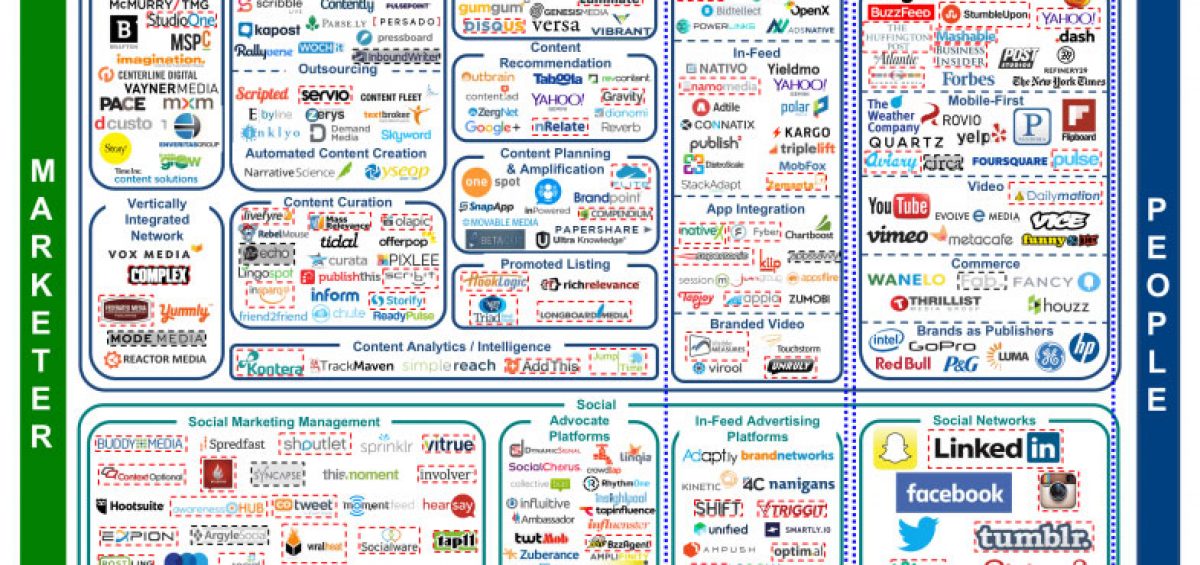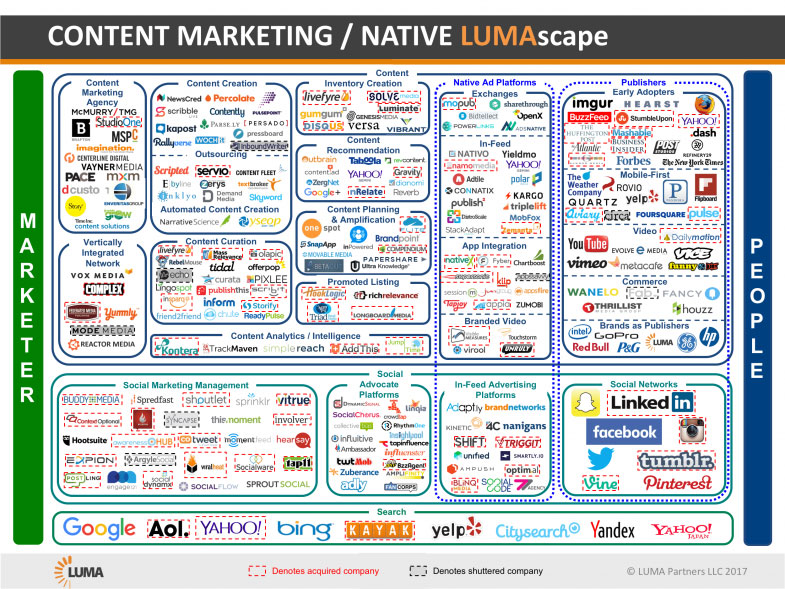
Content marketing is defined as a strategic marketing approach focused on creating and distributing valuable, relevant, and consistent content to attract and retain a clearly defined audience—and, ultimately, to drive profitable customer action. ~ Content Marketing Institute
Content Marketing means creating and sharing valuable content to attract and convert prospects into customers, and customers into repeat buyers. ~ Copyblogger
Table of Contents
The State of Content Marketing in 2018
The content marketing landscape has changed drastically in the last few years. We would like to help you figure out how you can navigate this ever-changing content marketing landscape by understanding the current and upcoming trends.
Content Formats
By and large, content has moved beyond just articles, infographics and pictures. In recent years, online users prefer consuming video content, be it short-formed (less than 30 seconds) or long-form (more than 5 minutes).

Social Media
For both B2B and B2C businesses, social media remains as the main driver for content marketing success and it is changing the game. There are always new visual content opportunities in imagery and video every now and then, from Instagram Stories to Facebook Live to the latest short videos format such as Tik Tok.

Content Marketing Agency
Content marketing agencies help companies build relationships with their customers through compelling content.
In comparison to 3 years ago, the content marketing industry has become more competitive than ever. There’s been a surge of larger creative agencies setting up in-house content-marketing teams.
Hiring the right content partner has always been more of an art than a science. It has become even more challenging in the era of content marketing. How can brands find agencies with content marketing expertise?
A competent agency should be able to show examples of editorial calendars and personas, demonstrate an understanding of the customer’s buying process, and discuss how they developed the content pillar to nurture leads and convert them to loyal customers.

Technology
Keeping up with content marketing technologies can be an overwhelming task for most marketers, as the content marketing technology landscape is continually evolving.
The amount of companies building solutions for content marketing – ranging from A.I to content analytics companies – is burgeoning.
Based on the Content Marketing Infographic (LUMAscape), there are more than 300 marketing technology companies providing solutions for content creation, content recommendation, content amplification and content analytics.
Customer
Generally there are 7 types of content marketing customers. They are usually looking for:
| 1. Thought Leadership Content |
Thought Leadership customers are going after in-depth content that can help them to position their company as a leader in their industry through best-in-class content.
They are willing to pay a premium and typically work directly with agencies to generate quality content.
| 2. Branded Custom Content |
Brand publishing customers are looking to create compelling content based on their products or services to engage their customer base. For example, a home appliance company like BOSCH may create a publishing site and content centred around how to use their vacuum cleaner.
| 3. Generic Content |
Generic content customers usually will usually have a proper content management system (CMS) in place, and all they need is a scalable solution which will help generate a lot of content. They are open to use the marketplace, crowdsource solutions or hire content marketing agencies to support their content production efforts.
| 4. SEO Content |
SEO Customers usually look into more tactical content creation to rank and stay relevant in search results. Unique content that can rank well is the main driver of their SEO efforts.

| 5. E-commerce Content |
E-commerce companies that continually update their product information and catalogue with new products are also looking for ways to bulk produce content.
| 6. User-Generated Content |
Most of the customers looking for user-generated content have a platform such as TripAdvisor, YouTube, LinkedIn etc that can be used to accumulate their content marketing efforts. They are constantly looking for ways to entice more content creators to join their platform and create quality content.
| 7. Influencer Generated Content |
There is a growing demand for Influencer-Generated Content. An influencer is known for creating unique content that can resonate with their target audience and followers. Influencer generated content is often well-received by consumers as they usually appear like native content and unlike conventional advertisements.

Conclusion
Whether it is B2B or B2C, the importance of knowing the behaviours of your target audience and reaching out to them with the right type of content is critical. Assessing their challenges and motivation is a good starting point when creating the right type of content that they can resonate with.
For brands to flourish in this digital age, audience preferences need to be treated with utmost respect. It’s all about creating epic content that can ‘buy’ their attention.


